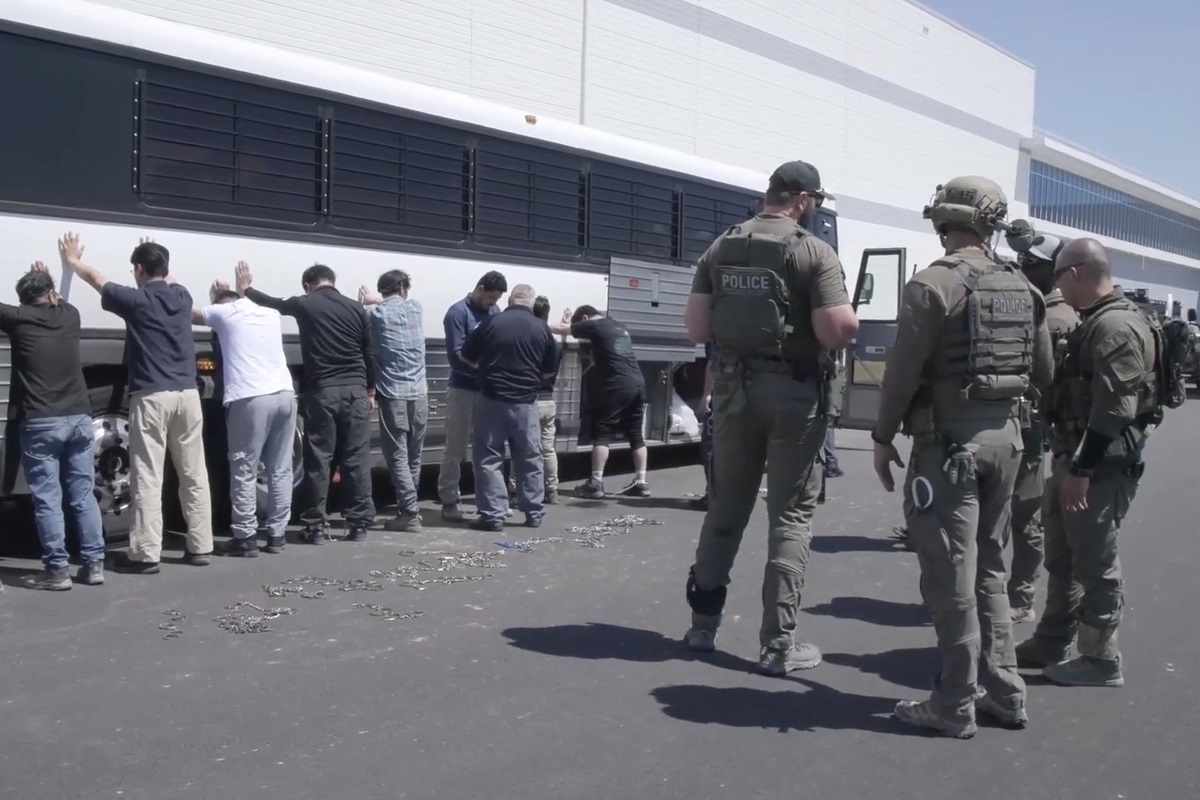With Hyundai raid, US strikes at South Korean forced investments
More than 300 South Korean workers were arrested at a Savannah, Georgia electric battery plant. While President Donald Trump called them “illegal immigrants”, they are in fact engineers needed in a plant owned by South Korean company that has invested in the United States to meet the president’s demands. In South Korea, the incident has sparked outrage and raised fears about defence cooperation.
Seoul (AsiaNews/Agencies) – The approximately 300 South Korean workers arrested at a Hyundai plant in Savannah, Georgia, will return to South Korea, the South Korean government said after South Korean Foreign Minister Cho Hyun travelled to Washington.
The episode has sent shockwaves and sowed confusion and anger in South Korea, because the electric battery plant where the workers were arrested followed US requests for South Korean investment to conclude trade agreements on tariffs.
US President Donald Trump called the workers “illegal immigrants” detained by the US Immigration and Customs Enforcement (ICE) agency, a federal body that enforces immigration laws. In reality, they were engineers and equipment installers brought to perform highly specialised work and were authorised to stay in the United States on B-1 visas.
According to attorney Charles Kuck, who represents four of the arrested South Korean nationals, the workers planned to stay only for a couple of weeks and "never longer than 75 days."
The B-1 visa allows foreign workers to stay up to six months, receiving reimbursement for expenses while being paid back home.
Furthermore, South Korea is among the countries whose citizens can use the Electronic System for Travel Authorization (ESTA), which provides visa exemptions if they can provide a "legitimate reason" for their visit, essentially granting them B-1 visa status for up to 90 days, several immigration lawyers explained.
After the raid, ICE released images of detainees with shackles on their wrists, ankles, and waists, sparking outrage in South Korea.
Trump also said that the shortage of skilled workers should be addressed by training US citizens, but Kuck emphasised to the Associated Press that such an effort would take three to five years.
In fact, no company in the United States manufactures the machinery used at the Georgia battery plant, so South Korean workers had to come from abroad to install or repair the equipment on-site, a fairly common practice that has been done for decades with many foreign companies.
The Savannah Labor Council has a different take. The South Korean workers poured concrete, assembled steel, performed carpentry work, and installed pipes – all activities that fall outside the visa-waiver regulations. “Essentially, our labor was being given to illegal immigrants,” said Christi Hulme, president of the Savannah Regional Central Labor Council.
Migrants from Mexico, Guatemala, Colombia, Chile, Ecuador, and Venezuela were also detained, while those who were not arrested are afraid of returning to work.
ICE used military vehicles, drones, and helicopters during the operation, the largest ever conducted at a workplace as part of Trump’s mass deportation programme.
South Korea's Foreign Minister Cho Hyun described the incident as a “very serious matter" that he never expected.
Several South Korean companies explained that they had to send their skilled workers to the United States using ESTA or B-1 visas. “[I]t’s extremely difficult to obtain an H-1B visa, which is needed for battery engineers,” said Park Tae-sung, vice president of the Korea Battery Industry Association, speaking to Reuters. “That’s why some people got B-1 visas or ESTA.”
Various observers note that this action by the US will not be forgotten in South Korea and will also have a long-term impact on US national interests.
Relations between the two countries were already tense following the tariff talks, which took place during a series of military exercises to meet possible threats from North Korea.
The tariff was raised from 25 per cent to 15 per cent, while Washington asked Seoul to invest US$ 350 billion in the US and purchase 0 billion in energy. Hyundai had pledged to invest US$ 26 billion.
According to a recent survey, nearly 60 per cent of South Koreans believe the detention of workers went overboard and expressed disappointment with the US government.
Several South Korean companies have put on hold building new plants in Georgia, considered a key hub for South Korean investments in the United States.
More than 110 Korean companies, including Hyundai Motor Group, SK On, and Hanwha Qcells, have a foothold in the state.







.png)










